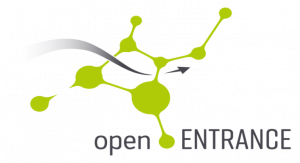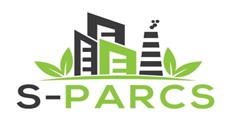


![]()
https://www.geosmartproject.eu/
The GeoSmart project addresses the strategic flexibility required from European geothermal installations as they become significant energy sources over the next 20-30 years. Geothermal will need to exhibit a high level of fast flexibility if it is to function as a "dispatchable" (controllable) energy source in future, in combination with the lowest-carbon renewable energy sources - solar thermal and wind power - whose supply of energy is sporadic in its delivery.
The more flexibility we can introduce into the geothermal sector, to cover both the fluctuations within a day and the seasonal swings in heat to power ratio, the more RES integration it can support, achieving policy objectives towards energy sector decarbonisation, energy security and reduced gas import burden. In the context of the GeoSmart project we optimise and demonstrate innovations to improve the flexibility and efficiency of geothermal heat and power systems, specifically:
This will close in 20 seconds

Open ENTRANCE (Open ENergy TRansition ANalyses for a low-Carbon Economy), addresses the development, use and dissemination of an open, transparent and integrated modelling platform for assessing low-carbon transition pathways that cuts across the boundaries of established fields of knowledge. The platform (https://openentrance.eu/) populated with a suite of modelling tools and data selected to cover the multiple dimensions of the energy transition. This facilitates and improves the dialogue between researchers, policy makers and industry when investigating key questions linked to the energy transition:
This will close in 20 seconds

https://www.sparcs-community.eu/
S-PARCS aims at moving from a single-company energy efficient intervention approach to cooperative energy efficient solutions within the framework of industrial parks, thus enabling higher energy savings and the subsequent increase of competitiveness of the companies located in the parks. S-PARCS systematically analyses technical, economic, regulatory, legal, organisational, environmental and social barriers to energy-efficient park design and operation on all levels and provides innovative, market-ready solutions to overcome them. The specific objectives of S-PARCS therefore addresses the fundamental components required to implement these new and innovative concepts and to facilitate undelayed actions, to raise widespread awareness and to foster their swift replication.
In the S-PARCS project, industrial park managers, large, medium and small-scale companies, engineering consultants, innovation exploitation specialists and research organizations work together to significantly improve the energy efficiency and competitiveness of industrial parks by breaking the barriers toward energy cooperation and mutualised energy services. S-PARCS revises the paradigm of single-process or single-plant optimisation in industrial parks and puts cooperation mechanisms at the centre of its optimization approaches. S-PARCS develops and tests innovative solutions, providing instruments for turning promising concepts into real-world applications. Together with a diverse group of project supporters, the consortium creates a community of industrial players jointly aiming at new models of energy-related cooperation, while taking full account of their environmental and social responsibilities.
This will close in 20 seconds